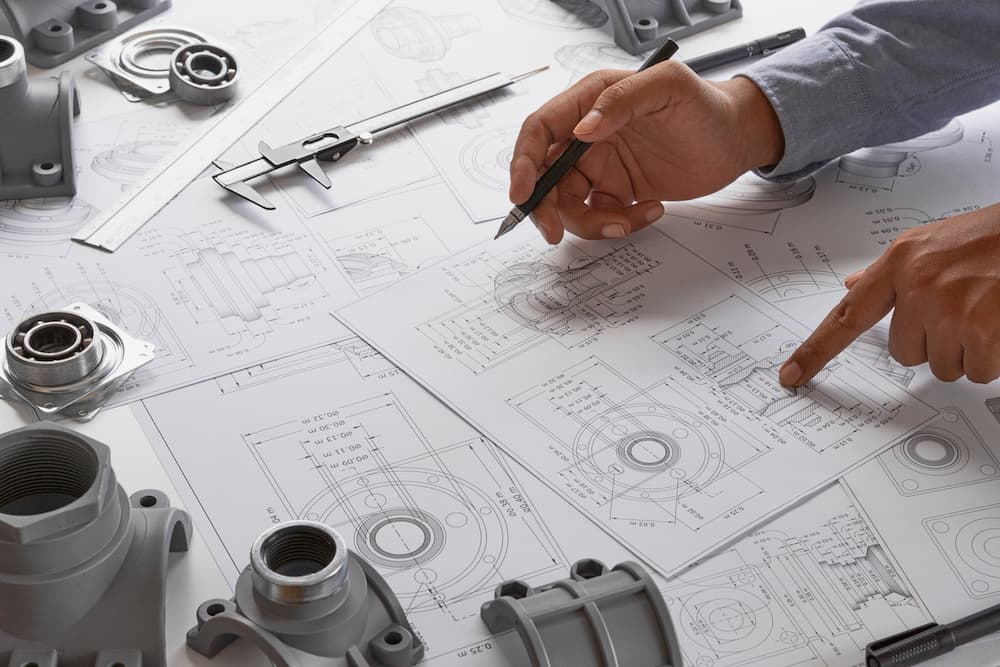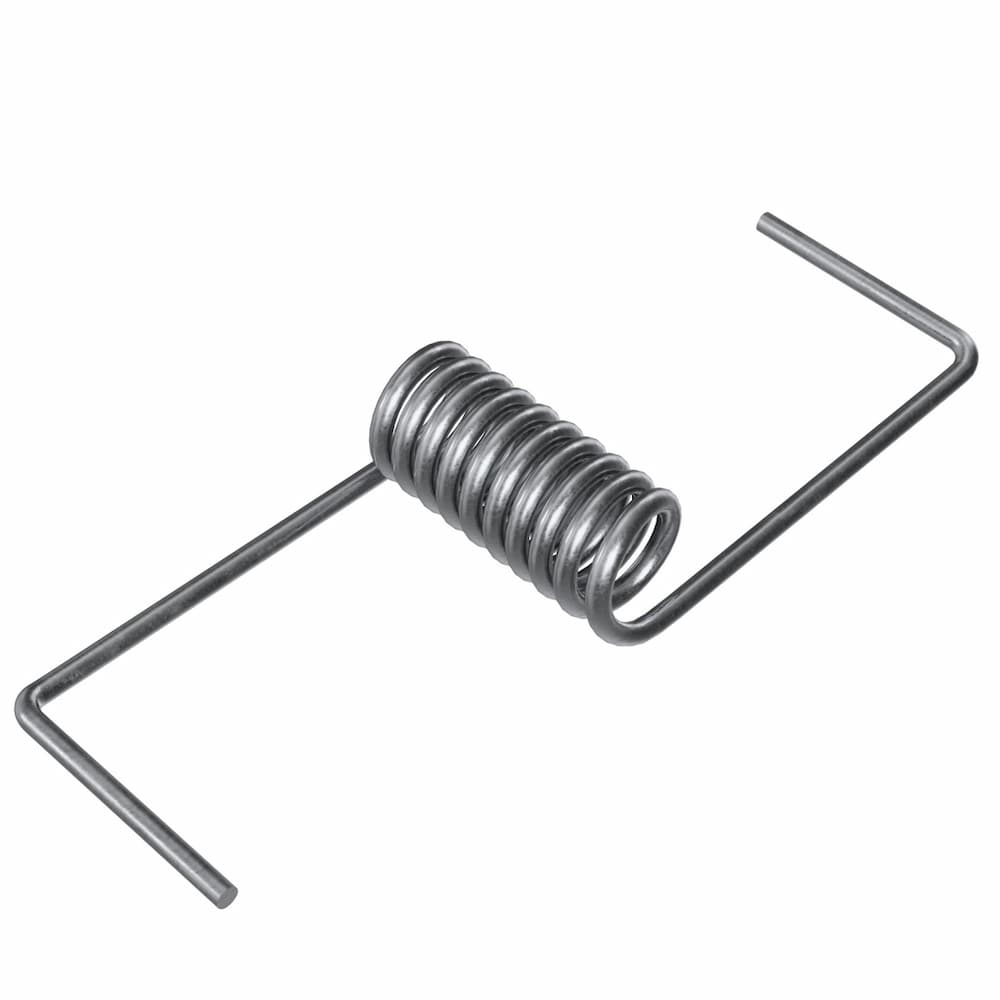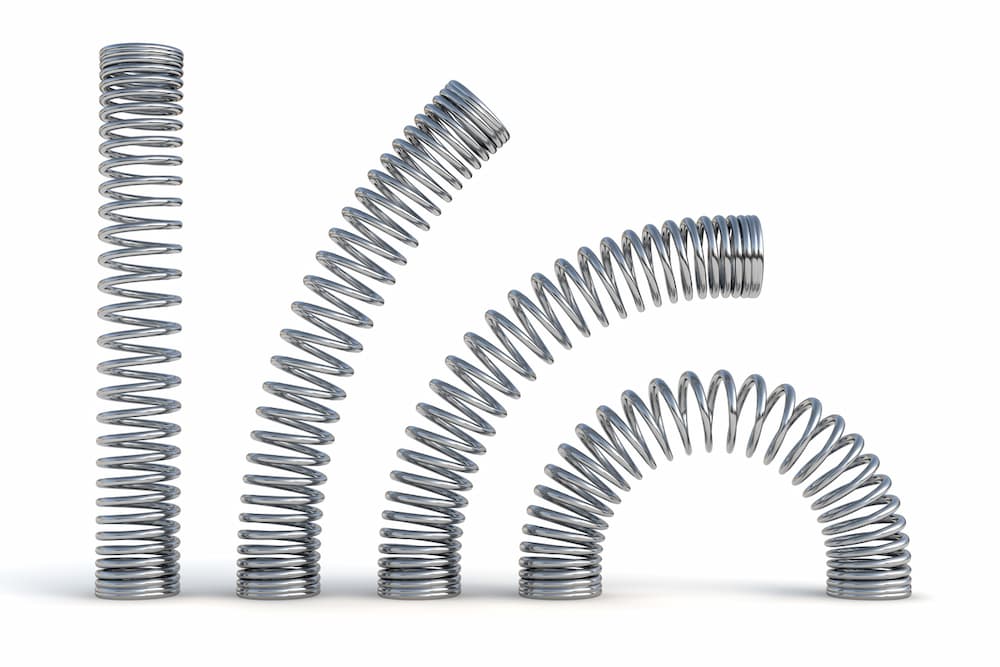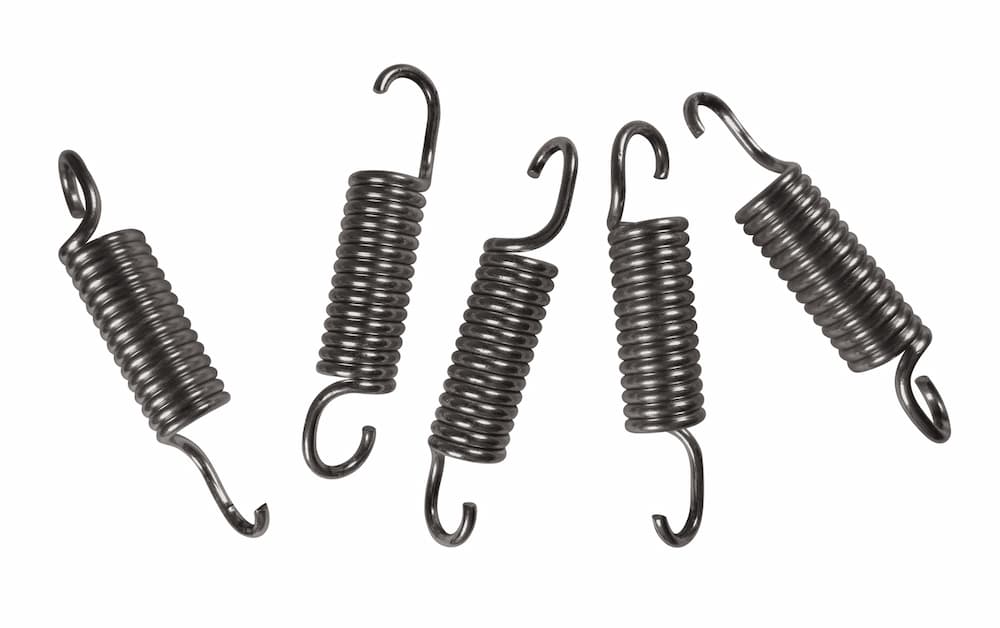Springs have been used as vital components in many areas of modern life. As a result, the varied spring designs available have become essential for both commercial products and industrial applications. In addition, the reliability of well-made springs makes them a designer’s first choice for machine design.
Industrial applications are put under high stress with many machines exposed to changing temperatures, chemical exposure and outdoor conditions. Therefore, the reliability of industrial machinery will heavily depend on the quality of its internal components. Fortunately, high-quality springs are an excellent choice to suit most industrial applications. If you are a visual learner, feel free to skip to our infographic that covers the different types of industrial springs and their applications.

Torsion Spring Applications
As a torsion spring manufacturer, we have supplied thousands of this spring design for various applications, including industrial ones. These springs are used for hinges, counterbalances and general lever return applications. One place you will commonly find torsion springs are in car door handles. The handle will return to its original position after use with the help of torsion springs.
What Is a Torsion Spring?
A torsion spring can be manufactured as a single or double design, but both are ideal when angular movement is required. The two attached legs are connected to other components. When these attached components are rotated around the centre of the spring, there is resistance, as the spring will always attempt to return to its original resting position by exerting a rotary force (torque).

Torsion Springs in Various Industries
The automotive industry gains the most from the design of torsion springs. These modest components provide a smooth, frictionless motion and even tension across the whole spring.
Springs manufactured for the automotive industry generally consist of chrome silicone because of the material’s enhanced resistance to chemical substances. You can find torsion springs in the gear shifts, clutches, suspension and automotive valves.
Torsion springs are not just limited to commercially produced vehicles; you can find them used in many different engines and machinery across a broad range of industries.
The healthcare industry also requires small torsion springs for their increasingly intricate hospital equipment. High-carbon steel is often chosen for medical applications such as dental tools, hospital beds and bedside care equipment. Carbon steel has an increased carbon content, usually 2.1%, but it can be more. The popularity of high-carbon steel springs is due to their incredible properties and ability to provide wear-resistant springs that can be used in high-pressure environments.
The agricultural and construction industries require durable torsion springs varying in size to meet their equipment’s needs. For example, large torsion springs are used in tractor engines, sprayers, and ploughs. In addition, construction machinery is put under duress every day. Therefore, any installed torsion springs must be strong, durable and resistant during a long, dependable lifecycle from high stresses, temperatures and chemicals.
Compression Spring Applications
Compression springs are the most well-known spring design in the world and an excellent energy storage spring. You can find these springs almost everywhere, whether it’s a mattress, pen or a car’s suspension.
What Is a Compression Spring?
This classic design is an open-coil helical spring. When pressure is applied to the spring, it will provide resistance to return to its original position.
These springs can be formed into several shapes to suit many applications, such as cylindrical, conical, barrel and hourglass. These varied designs are usually placed over a rod or fitted into a hole when installed in industrial applications. As experienced compression spring manufacturers, we can supply our high-quality springs to meet many different specifications, including ground or unground ends.

Compression Springs in Various Industries
Compression springs are integral parts of landing gear, flight control and many other internal elements of a plane. The aerospace industry relies upon using the highest quality compression springs. This is one of many thousands of components needed to keep aircraft flying.
Beyond the aircraft, compression springs are used for many applications on the ground to support the aircraft and must be relied upon. Springs are excellent for aerospace operations as they are highly resistant to pressure changes and corrosion.
The railway industry employs heavy-duty compression springs with a broad range of specifications, from large to small. The suspension system is one crucial element of train manufacture, and two corresponding parts rely on compression springs. The primary system ensures that the structural suspension is within acceptable parameters when in motion, and the second one provides the passengers with a more pleasant journey.
Compression springs are also installed onto oil rigs, where they are a vital component for managing intense pressures.
Medical devices also use compression springs with micro springs used in inhalers or syringes and large springs used in complex medical equipment, in addition to suspension systems among the ambulances.
Tension Spring Applications
Tension springs (or extension springs) are a spring loaded with tension and comes with valuable hooks or loops that make them essential for level-based mechanisms. You can find tension springs anywhere something needs to be kept closed, such as a garage door or gate.
What Is a Tension Spring?
Tension springs are designed to retract back to their original position after the force applied is removed. In addition, the previously mentioned hooks or loops are attached to external components to prevent them from permanently moving apart.
A tension spring manufacturer such as Airedale Springs ensures that these springs are wound to oppose extension. The tension of the wind can be manipulated to meet the load requirements for a particular application.

Tension Springs in Industry
Tension springs are commonly used in various machinery and level applications. For example, you can find them in vehicle carburettors, farm machinery and construction equipment. They are also a popular component of previously mentioned industrial sectors such as aerospace and automotive.
The robotics industry uses tension springs the most as the levered nature of mechanical arms is well suited to the features of a tension spring.
Airedale Springs specialises in high-quality, custom spring manufacture. Over the decades, we have developed award-winning methods that are highly beneficial to our industrial clients, who can confidently rely on their machinery thanks to our manufactured components.
Industrial Spring Applications Infographic


